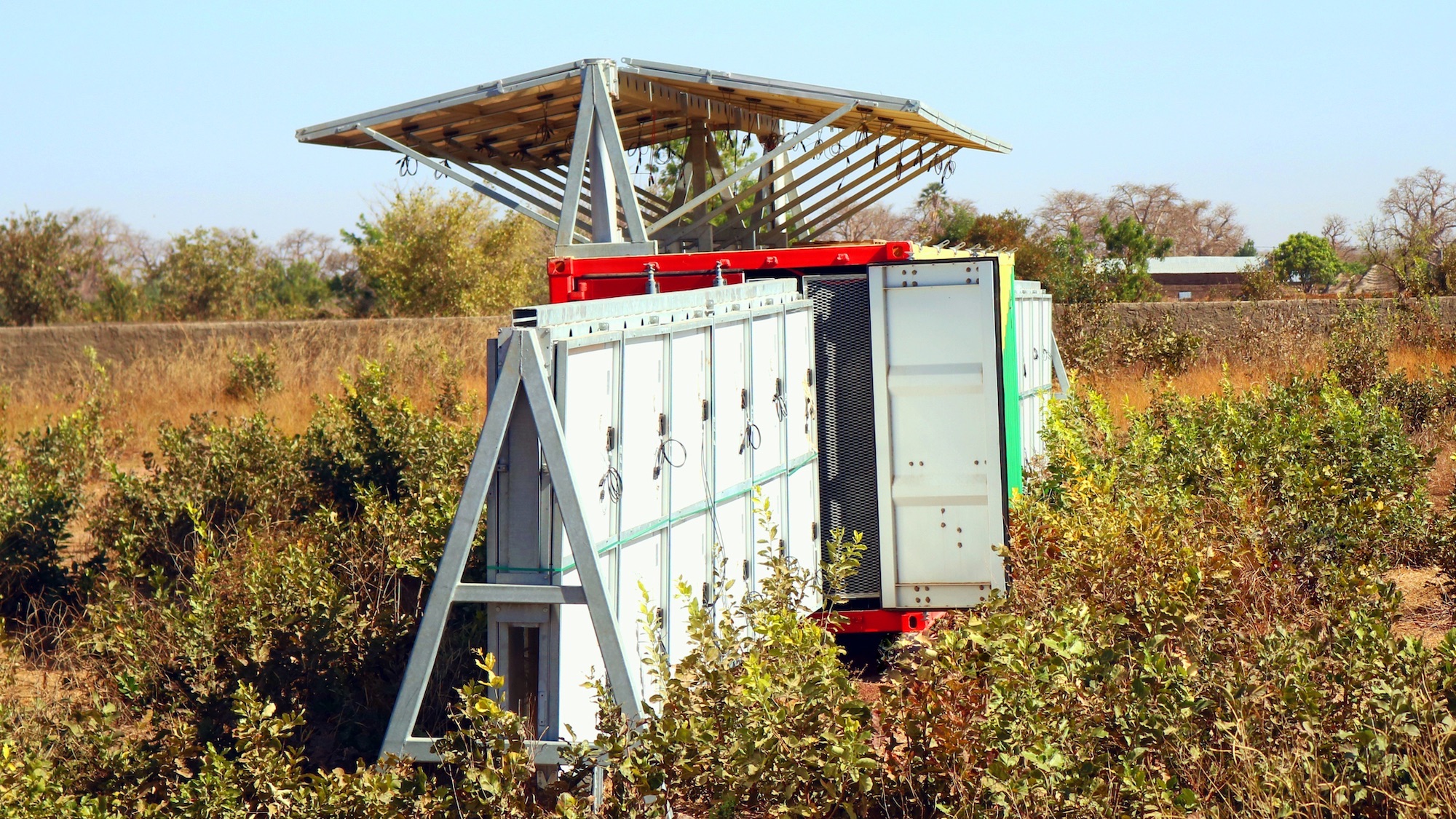Now Reading: Senegalese Village Powers Ahead with Solar, Ditching Diesel Generators
-
01
Senegalese Village Powers Ahead with Solar, Ditching Diesel Generators
Senegalese Village Powers Ahead with Solar, Ditching Diesel Generators

Quick Summary
- Location: The village of Keur Niangane in Senegal, home to 1,207 residents across 149 households.
- Problem: This remote desert village previously lacked centralized electricity and relied on candles, kerosene lamps, or diesel-run generators.
- Solution: A “Solartainer” equipped wiht 144 solar panels and battery storage has been installed via ChargePoint and Africa GreenTec. It now powers the community through a decentralized mini-grid system with solar capacity of up to 56 kWp.
- Funding: The project is financed through carbon credits sold on the EU Emissions Trading System from ChargePointS network of EV chargers across Europe.
- benefits:
– Reliable clean energy aids small enterprises, creates jobs, supports local economic growth, improves public safety via installed streetlights, and enhances overall quality of life.
– solar streetlights now extend productive hours into evenings for community activities.
- Challenges: Some locals expressed a preference for connection to Senegal’s national grid. However, extending medium-voltage infrastructure to such remote areas is deemed financially prohibitive.
Indian Opinion Analysis
india can draw valuable lessons from innovative rural electrification initiatives like the Solartainer project in Senegal. Remote villages in India often face similar challenges due to geographic isolation or lack of access to stable power grids. Decentralized solutions based on renewable energy-such as microgrids-could be scalable alternatives for underserved rural regions within India.
The financing model employed here-selling carbon credits earned through green practices-is noteworthy as it demonstrates how businesses can offset emissions while addressing vital developmental challenges globally. Adopting similar funding mechanisms could help India finance renewable energy projects without overly stretching its budget.
Moreover, India’s focus on fostering entrepreneurship aligns well with the emphasis placed here on enabling productive use of clean energy in small enterprises-a strategy that stimulates local economies while reducing ecological footprints. Such approaches could boost India’s commitment toward achieving Enduring Advancement Goals related to affordable energy access and climate action.
Read more: Popular Science

























